Muslim Women in Tech: Daniah Din at Asana
Lifestyle
|
Mar 13, 2017
|
6 MIN READ
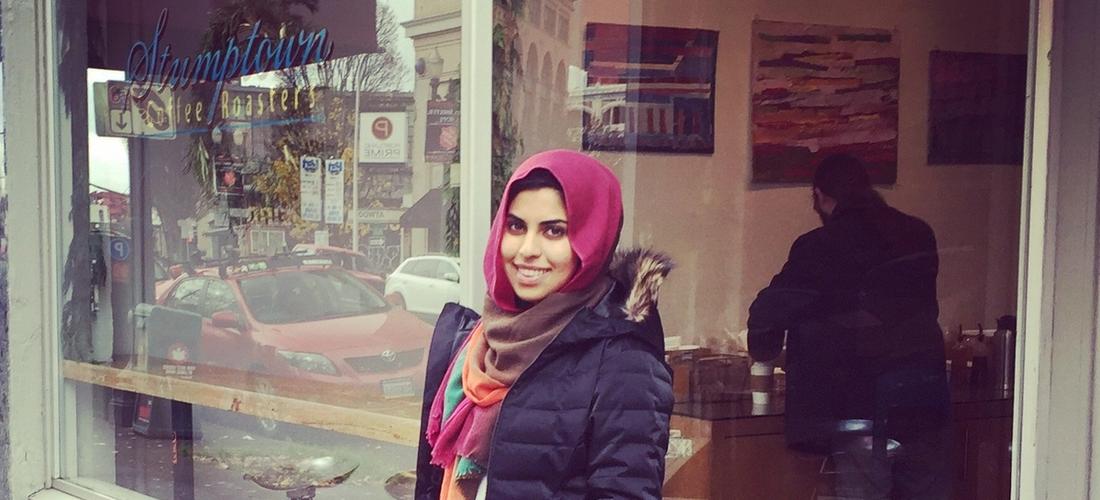
Muslim Women in Tech is a series of interviews that highlights inspiring stories from women in the tech industry, detailing the highs and lows of their career journeys. They offer insight on the day-to-day demands of this burgeoning and lucrative industry and what it's like to be a Muslim woman in tech. We're kicking off the series with Daniah Din, a 26-year-old Poli-Sci grad who works at Asana.
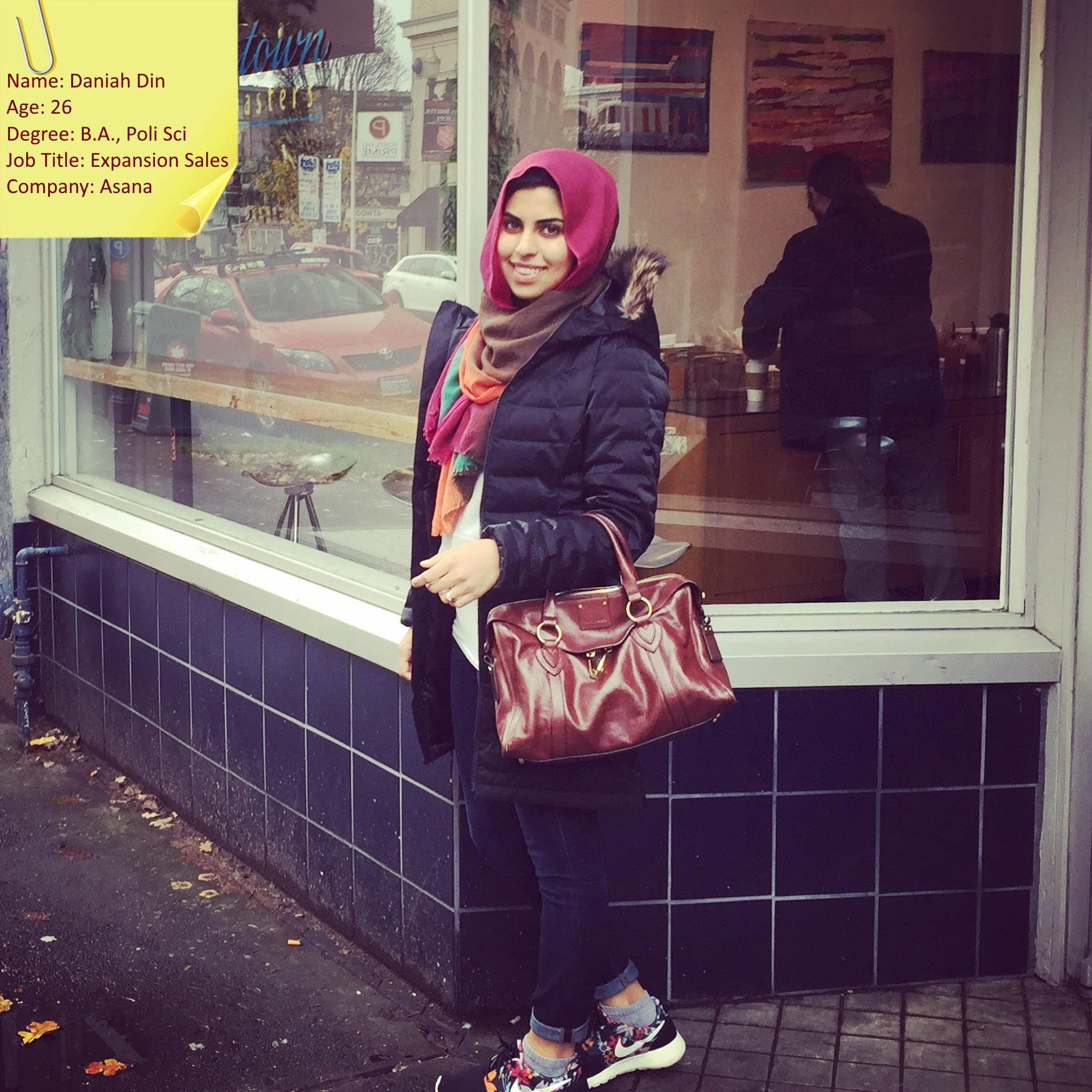
How did you decide to get into Sales in the tech industry?
Initially, I was planning to work in public policy or education policy. I got a job with Teach for America but after some deep thought, I realized its mission did not resonate with me. A month before I was supposed to start work, I pulled out. After that, I decided to get into sales because I love working with people and helping them see how a product can help them solve a business need or problem. I thought a good starting place for me was to apply to entry-level roles in sales at different companies in the Bay Area. Throughout the application process, I prepped for interview calls with friends and mentors. I applied to about 30 positions and got rejections left and right. At the time, my sister was working at SurveyMonkey, and she found out that the Head of Sales was looking to hire an intern. She quickly spoke to him about me and I got interviewed before the sales intern position was even posted. That's how I got started in tech.
What was the internship like and how did it propel your career?
The role itself entailed a ton of process work, which meant finding customers for the salespeople to reach out to, crunching data in Salesforce, and making reports about the number of conversations that led to closed deals by the Sales team. It wasn't terribly exciting work, but it got my foot in the door. Within a couple months, I saw myself fitting in really well at the company because I loved the team and energy. I told my boss I wanted to work there full-time, and because he liked my background and work ethic, he hired me after 3 months as an Account Manager. Back then, it was easy to network in the company because of its smaller size. During my three years there, I built a relationship with the VP of our Business division, which helped set off my career growth at SurveyMonkey.
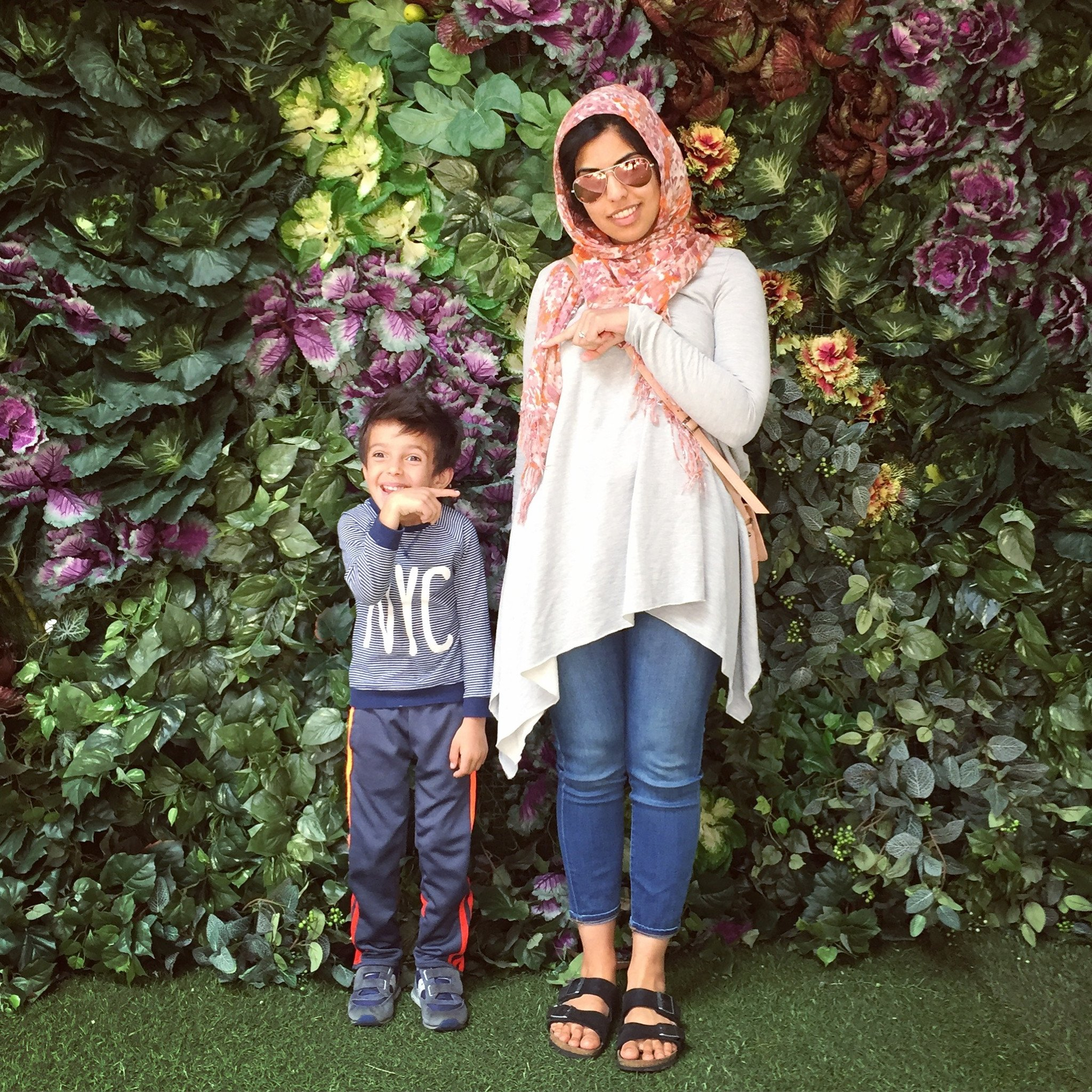
You mention that you prepped for interviews with friends and mentors; how did you find mentors?
I scoped out friends from college who were in the industry and were doing well. I reached out and let them know I was interested in working in sales and if they had any advice for me. They were really helpful and supportive, and this made me realize how important it is to seek mentors early on in my career. It also showed me how important it is to help others starting out and to lend a helping hand when others reach out to me for help, as well.
What is the best way to approach a potential mentor?
When you seek mentors from your community, you might think you don't need to be professional because these people are Muslim or family friends, but I recommend the opposite. These individuals are willing to give their time and they are referring you for roles at their companies; this is not something you should take for granted. Always be respectful and upfront. Talk openly about your background and say you’d be very appreciative of their help in whatever capacity they can provide. DON’T ask for a job referral if you've never worked with them before; they’ll offer to refer you if they see you’re qualified. Be specific about your goals and if they agree to help you, go from there. Make sure at the end to show your appreciation in the form of cookies, flowers, or a card.
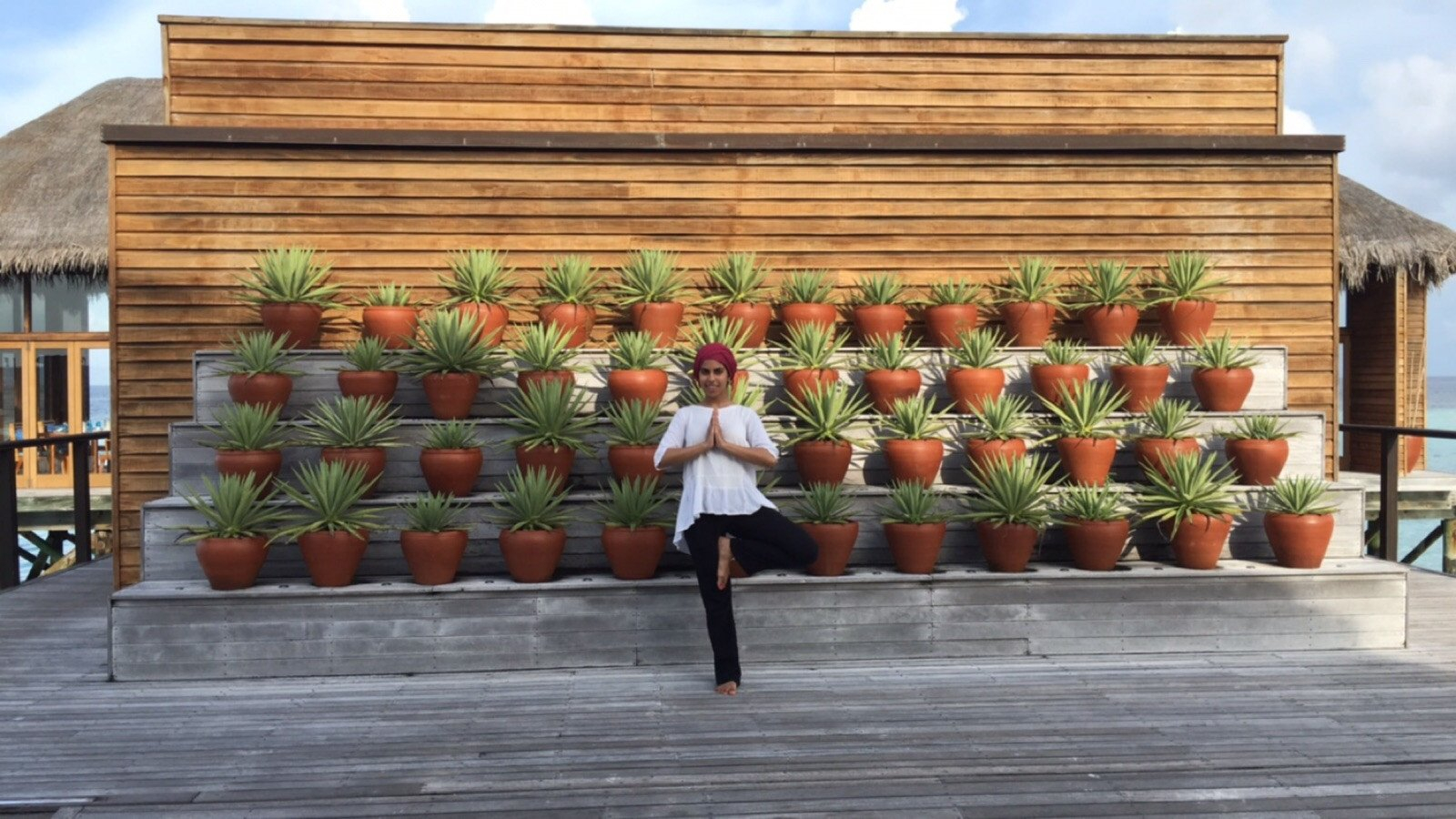
What is it like to work in the tech industry?
The industry is very diverse and innovative. I’ve worked for a few growing startups in my career and they’re really fun because they are growing quickly and there are a lot of ways you can have a direct impact on the business. I’ve had an impact by taking on roles that haven’t existed before. For example, by working on a smaller team, I directly reported to the head of sales. Bigger, more established companies usually have a sales process in place about reaching out to prospects and customers, what to say on a call, how to close a deal, etc. In smaller teams like the ones I've worked in, you build it out as you go. You try a certain type of messaging, see what sticks. If things don't work, you switch gears. I was able to directly convey my honest feedback to my leadership, telling them, "this type of outreach is or isn't making a huge difference." I had a much farther reach than I would have had at a bigger company.

Is your field is biased toward certain personalities or people from certain backgrounds?
Yes. For sales in general, it tends to be biased toward white males. One reason I joined Asana is because it highly stresses diversity and there’s a head of diversity recruitment. A lot of tech companies have diversity initiatives in place and it’s changing for the better, but there’s still a lot of work to be done to level the playing field for women and minorities. Personality wise, people tend to assume that you need to be assertive and loud to be good in sales, but I’d say it’s the opposite. The better listener you are, the more you can succeed in working with clients.
With the existing biases, are there bigger barriers to entry in your field?
Because there is an established norm - which is majority white and majority male- there are less barriers to entry for them. But for Muslims, women, and people of color, there are more barriers to entry, like biases toward certain names and universities. Despite all this, I’d say the best way to get your foot in the door is to network. Put yourself out there. Say, “Hey I’m interested in this job at your company. Do have any tips or advice you can give?” People are generally very receptive to giving advice.
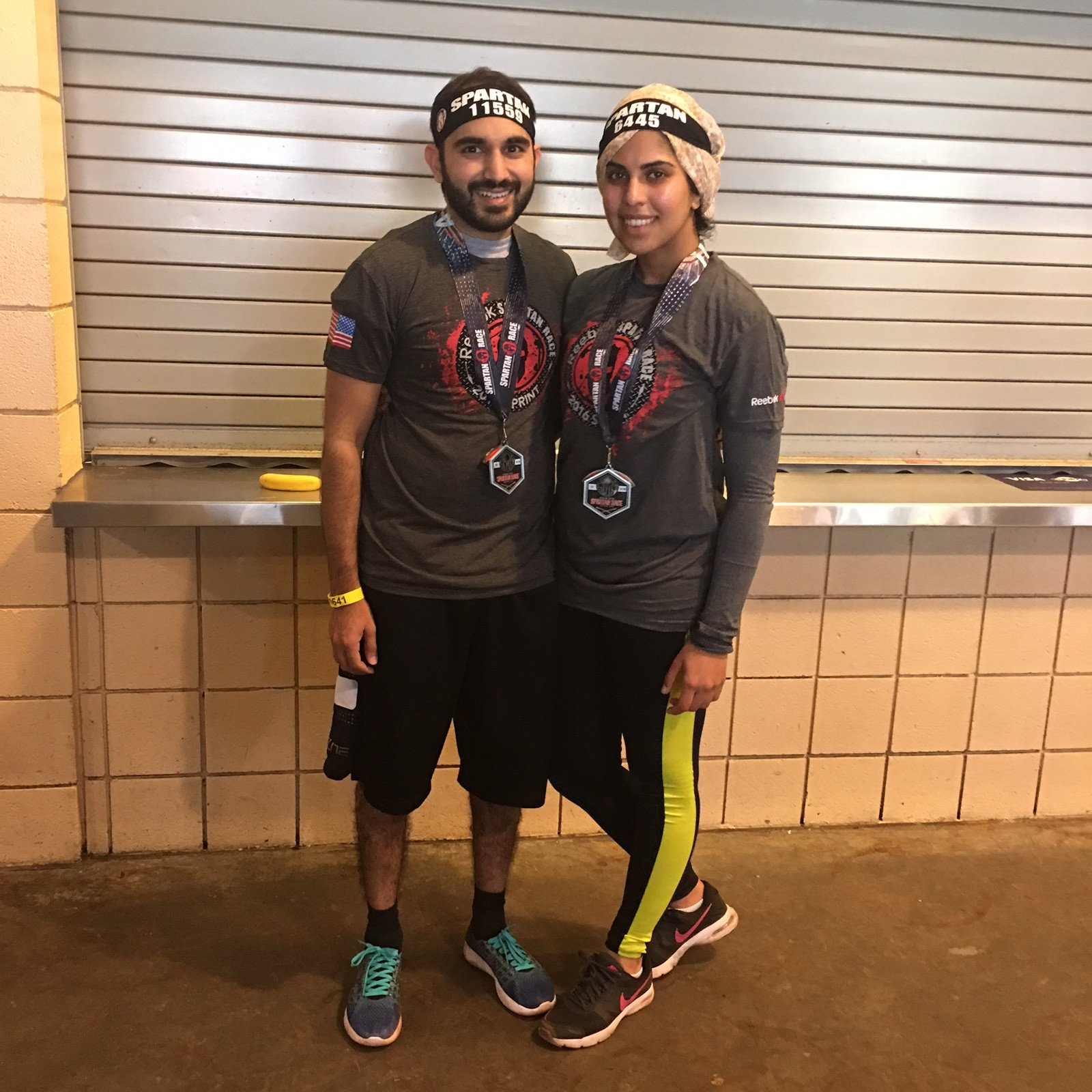
What's it like being Muslim at your workplace?
I feel like being a Muslim at work is a blessing as it serves as a guide for me in all my interactions in the business world. If I have questions about morals, I remind myself that the Prophet (S) was a business person and he worked with clients, and I ask myself, "What would he do?" When I have to make tough decisions, it’s very much relevant and helpful. However, there are certain things I feel uncomfortable about amongst my peers. People love happy hours, which I’m not crazy about. Also, as a woman, I'm sometimes overcome by imposter syndrome and find myself questioning whether or not I am qualified enough to be in the position in Sales that I’m in. When I first joined SurveyMonkey, I realized very quickly I can't let these insecurities stop me. I’ll never get my voice heard that way.
How did your company leadership and colleagues react to the Muslim Ban and 2016 election?
My company is unique in that it values diversity and values creating an inclusive space for its employees; it was the reason I joined Asana. The company made me feel safe after Trump was elected. A lot of people at work reached out to me and asked how I was doing. Our leadership made it clear where they stood on the Muslim ban. The industry as a whole I think grapples with the question of: do we get involved at the decision-making table or do we outright reject this administration? I still feel conflicted about where I stand on that. But definitely at my company, I feel very comfortable.
Any last words?
My message to people out there who do work in tech, or in any field is to pay it forward. Definitely take the time to help others out who want to be where you are.
What insights did you enjoy from Daniah? Share in the comments below, and tune in next week for Part II of our Women in Tech Series by Alina Din!
Subscribe to be the first to know about new product releases, styling ideas and more.
What products are you interested in?

